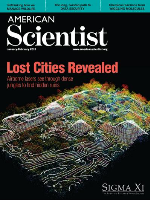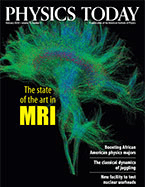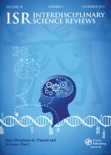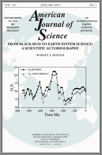
AMERICAN SCIENTIST
Scope & Guideline
Fostering Informed Dialogue on Scientific Progress.
Introduction
Aims and Scopes
- Interdisciplinary Scientific Exploration:
The journal covers diverse fields including biology, chemistry, physics, and environmental science, emphasizing the interconnectedness of scientific disciplines. - Public Engagement and Science Communication:
A strong focus on how scientific findings can be communicated effectively to the public, aiming to enhance public understanding of science. - Emerging Technologies and Innovations:
Research on cutting-edge technologies, including biotechnology, artificial intelligence, and medical advancements, highlighting their implications for society. - Environmental and Ecological Studies:
A consistent emphasis on environmental science, climate change, and ecological restoration, reflecting growing global concerns about sustainability. - Historical and Ethical Perspectives in Science:
Exploration of the historical context and ethical considerations surrounding scientific practices and advancements.
Trending and Emerging
- Health and Well-Being:
Recent papers show a significant increase in topics related to health, including mental health, the effects of racism on health, and the impact of COVID-19, indicating a growing concern for public health issues. - Climate Change and Environmental Resilience:
There is a marked trend towards discussing climate-related challenges and resilience strategies, emphasizing the urgency of addressing environmental concerns. - Data Science and Big Data Applications:
The rise of big data analytics and its applications in various fields, such as genomics and environmental science, reflects a growing interest in leveraging data for scientific advancements. - Ethics in Science and Technology:
An emerging focus on the ethical implications of scientific research and technological advancements, including discussions on equity, justice, and public engagement in science. - Science Communication and Civic Engagement:
A trend towards promoting civic science and public engagement initiatives, highlighting the importance of involving the community in scientific discourse and decision-making.
Declining or Waning
- Traditional Laboratory-Based Research:
There appears to be a decline in articles centered around traditional laboratory methodologies, as the journal shifts towards more interdisciplinary and applied research themes. - Purely Theoretical Studies:
As the journal embraces real-world applications and implications of science, purely theoretical explorations in fields such as mathematics and physics have seen a reduction. - Historical Scientific Figures:
While historical perspectives are still relevant, there has been less emphasis on detailed biographies of historical scientists, signaling a shift towards contemporary issues and figures.
Similar Journals

Metode Science Studies Journal
Connecting Ideas Across Time and DisciplinesMetode Science Studies Journal, published by UNIV VALENCIA, BOTANICAL GARDEN UV, is an esteemed open-access journal dedicated to advancing scholarly discourse in the fields of history and philosophy of science and multidisciplinary studies. Since its inception in 2013, the journal has positioned itself as a vital resource for researchers, professionals, and students, fostering an environment for innovative research and cross-disciplinary dialogue. Based in the vibrant city of Valencia, Spain, this journal aims to publish high-quality articles that explore the intricate relationships between scientific practices and philosophical inquiries. With a current impact factor demonstrating its relevance in the academic community, the journal is indexed in Scopus, ranking in the 52nd percentile for history and philosophy of science and the 33rd percentile for multidisciplinary studies. Scholars can access a breadth of research outputs that span from 2015 to 2024, thereby contributing significantly to the intellectual landscape of the respective fields.

JOURNAL OF SCIENTIFIC & INDUSTRIAL RESEARCH
Pioneering Research for a Sustainable Industrial FutureJOURNAL OF SCIENTIFIC & INDUSTRIAL RESEARCH, published by the NATL INST SCIENCE COMMUNICATION-NISCAIR in India, serves as a prominent multidisciplinary platform for disseminating impactful research since its establishment in 1969. With an Open Access model adopted in 1999, the journal ensures wide visibility and accessibility of innovative findings across various scientific disciplines. The journal, indexed with an ISSN of 0022-4456 and an E-ISSN of 0975-1084, offers researchers, professionals, and students an opportunity to engage with a diverse body of work, ranking in Q3 of the Scopus categories for 2023. Its scope spans an extensive timeline, accommodating submissions across a wide array of industrial and scientific advancements, promoting collaboration and knowledge sharing. By adhering to rigorous academic standards, the JOURNAL OF SCIENTIFIC & INDUSTRIAL RESEARCH plays a critical role in shaping the future of science and industry, drawing contributors and readers eager to contribute to and understand the latest trends and discoveries in this dynamic field.

National Science Review
Driving collaboration across disciplines for impactful solutions.National Science Review, published by Oxford University Press, stands as a premier open-access journal dedicated to advancing the frontiers of multidisciplinary scientific research. With an impressive impact factor reflective of its high citation rates and a Q1 ranking within its category as of 2023, it ranks #5 out of 171 journals in its field, placing it in the 97th percentile of Scopus' multidisciplinary rankings. Since its inception in 2014, the journal has evolved into a pivotal platform for the dissemination of innovative findings across various scientific disciplines, attracting contributions from leading researchers globally. Accessible to both academics and professionals alike since its transition to open access in 2020, the journal not only promotes collaboration but also ensures the broad dissemination of knowledge critical for tackling pressing global challenges. Residing in the historic city of Oxford, United Kingdom, it continually seeks to contribute to the global conversation on scientific advancements and their implications for society, making it an indispensable resource for anyone at the intersection of science and innovation.

European Journal for Philosophy of Science
Challenging Perspectives on Scientific PracticeThe European Journal for Philosophy of Science, published by SPRINGER, stands as a prestigious platform for scholars in the realms of philosophy and history of science. With an impressive impact factor and categorized in the Q1 Quartile for both History and Philosophy of Science and Philosophy, this journal ranks among the top 10% of its peers, reinforcing its critical role in advancing academic discussions and insights within these fields. With its composition of rigorous peer-reviewed articles and a commitment to fostering interdisciplinary dialogue, the journal navigates foundational and contemporary issues that shape scientific inquiry. Although currently not Open Access, it provides invaluable access to researchers, professionals, and students who seek to deepen their understanding of the philosophical underpinnings of scientific practice. Housed in the Netherlands, the journal continuously engages with the evolving landscape of philosophy in the scientific domain, making it a key resource for anyone invested in the intersection of science and philosophy.

PHYSICS TODAY
Exploring the Universe, One Article at a TimePHYSICS TODAY is a prestigious journal published by the American Institute of Physics, serving as a pivotal platform for the dissemination of innovative research and developments in the field of physics and astronomy. With an ISSN of 0031-9228 and an E-ISSN of 1945-0699, this journal has been in circulation since 1948 and is set to continue until 2024. Recognized for its substantial contributions to the scientific community, PHYSICS TODAY holds a significant position within the Q2 quartile of the Physics and Astronomy category as of 2023. Although it does not offer open access, its articles remain crucial resources for researchers, professionals, and students seeking to stay abreast of the latest advancements across a broad range of topics in general physics and astronomy. With a current Scopus ranking of #150 out of 243 and a percentile standing at 38, the journal bolsters its reputation as a reliable source for high-quality scientific discourse. In an era of rapid scientific advancement, PHYSICS TODAY remains dedicated to fostering a deeper understanding of the physical universe, making it an essential read for those invested in the future of physics.

Momona Ethiopian Journal of Science
Nurturing Ideas that Shape the Scientific LandscapeMomona Ethiopian Journal of Science is a distinguished open-access journal that has been fostering scholarly communication in the realm of natural and computational sciences since its inception in 2009. Published by the Mekelle University, College of Natural and Computational Sciences, this journal provides a platform for researchers, professionals, and students to disseminate their findings, share innovative ideas, and engage with cutting-edge developments within the field. With its ISSN 2073-073X, the journal aims to enhance scientific discourse by welcoming high-quality manuscripts that address a variety of topics relevant to the Ethiopian and broader scientific communities. Although specific metrics like HIndex and Scopus rankings are currently unavailable, Momona’s commitment to open access ensures that its content is readily accessible, promoting a collaborative atmosphere conducive to research advancement. Located in Mekelle, Ethiopia, this journal not only contributes to local knowledge production but also aligns with global academic trends that emphasize accessibility and interdisciplinary collaboration.

INTERDISCIPLINARY SCIENCE REVIEWS
Bridging Disciplines, Igniting Insights.INTERDISCIPLINARY SCIENCE REVIEWS, published by SAGE Publications Inc, is a prominent journal that serves as a pivotal platform for the convergence of insights across various domains, including the history and philosophy of science, interdisciplinary studies, and social sciences. Established in 1976 and continuing its legacy through 2024, this esteemed journal actively promotes innovative research and critical discussions, earning it a commendable Q2 ranking in key categories such as History and Philosophy of Science and Multidisciplinary, reflecting its influential contributions within the academic community. With a solid impact factor that highlights its relevance, INTERDISCIPLINARY SCIENCE REVIEWS is dedicated to fostering access to cutting-edge scholarship, although it currently does not offer open access options. The journal’s noteworthy rankings in Scopus further affirm its standing, making it an essential resource for researchers, professionals, and students seeking to explore interdisciplinary approaches to complex scientific inquiries.

AMERICAN JOURNAL OF SCIENCE
Shaping the Future of Planetary ResearchThe American Journal of Science, published by the esteemed Amer Journal Science, stands as a leading platform for groundbreaking research in the field of Earth and Planetary Sciences. With an impressive impact factor and distinguished Scopus rank 34/195 in its category, the journal occupies a prestigious position in the academic community, reflecting its high-quality and influential contributions to scientific knowledge. The journal’s objective is to disseminate original research, comprehensive reviews, and critical discussions that advance our understanding of geological processes and planetary phenomena, supporting scholars and practitioners in their pursuit of knowledge. Despite its traditional publication structure, viewers can explore its rich repository of works dating from 1945 to present, offering a wealth of insights into the dynamic Earth sciences. The journal remains a vital resource for researchers, professionals, and students eager to engage with the latest scientific findings and foster further innovation in the field.

Foundations of Science
Unraveling the Threads of Science's HistoryFoundations of Science is a renowned academic journal published by SPRINGER, dedicated to the interdisciplinary exploration of both the historical and philosophical dimensions of science. Established in 1995 and based in the Netherlands, this journal has carved out a significant niche within the History and Philosophy of Science and Multidisciplinary fields, holding an impressive Q2 ranking in both categories as of 2023. The journal's rigorous peer-review process ensures the dissemination of high-quality research, supported by its Scopus rankings, which place it in the top 15% of its peer group in History and Philosophy of Science and the top 28% in Multidisciplinary studies. Although not an open-access journal, Foundations of Science remains accessible through various academic channels, making its vital contributions to the discourse surrounding scientific foundations available to a broad audience. By fostering dialogue across disciplines, it plays a crucial role in advancing the understanding of science's philosophical underpinnings and its historical development, making it an essential resource for researchers, professionals, and students alike.

Spontaneous Generations-Journal for the History and Philosophy of Science
Connecting Generations of Thought in Science and PhilosophySpontaneous Generations: Journal for the History and Philosophy of Science is a dedicated publication focusing on the rich fields of history and philosophy within the scientific domain. Published by the Institute for the History and Philosophy of Science and Technology, this journal provides a vital platform for scholars, researchers, and students to explore and disseminate ideas that bridge the historical context and philosophical inquiries of scientific practices. With its commitment to open access, Spontaneous Generations ensures that groundbreaking research is widely available, fostering an environment of collaboration and knowledge sharing. Aiming to engage a diverse audience, this journal is pivotal for those looking to understand the evolution of scientific thought and its implications on contemporary issues, making it an essential resource in the academic community.